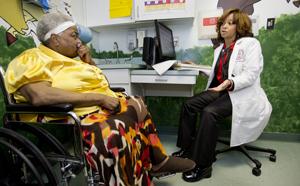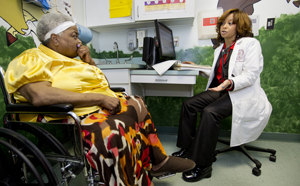Teaming up against health disparities


With a mission to help care for the medically underserved, the Florida State University College of Medicine has always been interested in understanding the obstacles that prevent some people from receiving basic health-care services.
Recognizing how health-care disparities impact Floridians is now a major collaborative effort among state universities and a combination of public and private partners, including the FSU College of Medicine.
The medical school and Florida State University are taking active roles in the new Florida Health Equity Research Institute (HERI). HERI seeks to implement a health disparities research agenda for Florida by focusing on developing and testing innovations that will improve the health of people in medically underserved populations. HERI hopes to be a major impetus for community involvement in finding solutions.
“Florida is one of the most diverse states in the country and there are people within the state who have a particularly high level of disease burden,” said Heather Flynn, associate professor and vice chair for research in the medical school’s Department of Behavioral Sciences and Social Medicine.
“For example, Florida’s rates of death due to stroke and diabetes are twice as high for the state’s black population in comparison to the white population,” said Flynn, a member of the HERI steering committee.
HERI will facilitate statewide coordination and cooperation in promoting innovative approaches to research. In addition, HERI will seek to increase the pool of health professionals from underrepresented groups and to help translate health equity research findings into community practices that promote better health outcomes.
Through HERI, FSU College of Medicine faculty and other researchers have access to new collaborations and funding opportunities that help to address health-care disparities. Non-recurring state funding championed by Florida Rep. Joe Gibbons in 2013 created an opportunity for 3-4 grants of $50,000 to be awarded to multidisciplinary research teams.
"Many health concerns, including infant mortality, disproportionately affect certain populations in our state. Having a statewide institute focused on health equity for all is an awesome and valiant endeavor," said Joedrecka Brown, associate professor of family medicine and rural health at the College of Medicine.
"I think we've got a great opportunity for success because of the various types of involvement from universities and the community."
Application information is available at FLHERI.org (see link for additional information below) or by emailing info@FLHERI.org.
During the current legislative session, Gibbons is seeking to establish recurring funding for HERI.

